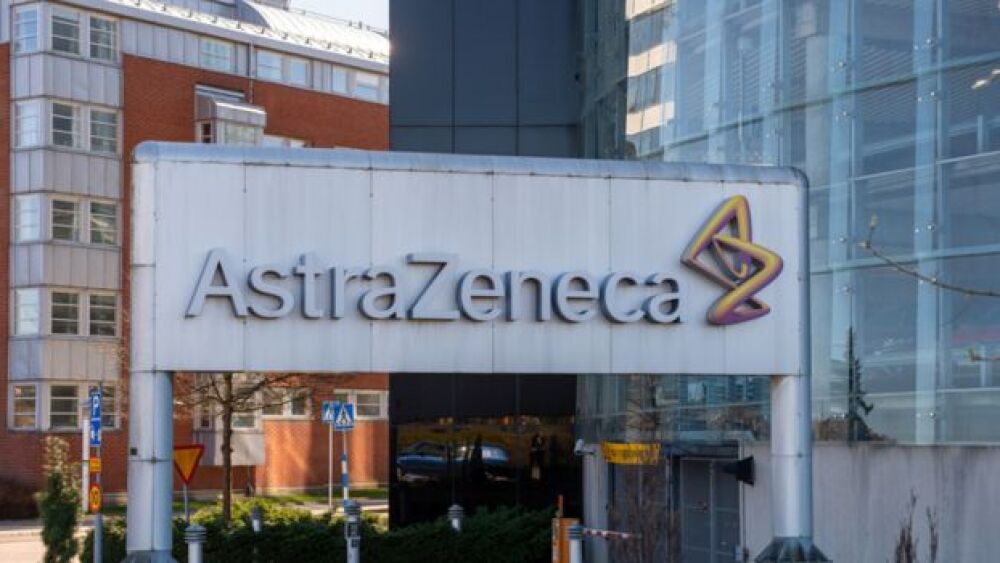The companies’ antibody-drug conjugate improved progression-free survival with a “trend in improvement” for overall survival in patients with HR-positive, HER2-low or negative breast cancer.
Pictured: AstraZeneca building in Gothenburg/iStock, Wirestock
The partnership that brought Enhertu to the market is gearing up for another potential breast cancer blockbuster. AstraZeneca and Daiichi Sankyo announced positive high-level Phase III results for their TROP2-directed antibody-drug conjugate Friday, with plans for regulatory submissions underway.
In the TROPION-Breast01 Phase III trial, datopotamab deruxtecan (Dato-DXd) improved progression-free survival (PFS) for patients with HR-positive, HER2-low or negative breast cancer compared to chemotherapy. Data were not yet mature for overall survival (OS), but “a trend in improvement” was observed, according to the companies. Patients in the trial had previously failed to achieve remission after at least one systemic therapy and an endocrine-based therapy.
More details are expected to be presented at an upcoming meeting and “shared with health authorities,” the companies announced. Additional Phase III trials are underway across other disease subtypes including triple-negative breast cancer.
The TROP2-directed antibody-drug conjugate (ADC) treatment combines monoclonal antibodies with chemotherapy to seek out tumors before delivering its cancer-killing payload, with the goal of sparing healthy cells. AstraZeneca and Daiichi Sankyo inked a $6 billion pact for Dato-DXd in 2020, building on their joint success with bringing Enhertu to the market. Daiichi Sankyo will hold exclusive rights in Japan while the development and commercialization expenses and profits will be split elsewhere across the globe.
In an earlier trial for non-small cell lung cancer (NSCLC), the ADC treatment showed statistically significant PFS improvement but was trending toward an insignificant improvement for its secondary endpoint OS. The underwhelming results in NSCLC dropped AstraZeneca’s shares in July 2023, while the release of the TROPION-Breast01 trial data had the company’s stock price up about 2% Friday morning.
If approved, Data-DXd will be pitted against Gilead’s Trodelvy, which was the first TROP2-directed ADC approved in 2020 and then expanded to the breast cancer population AstraZeneca and Daiichi Sankyo targeted in the TROPION-Breast01 trial. The current approval has Trodelvy as a third-line treatment. It is the first TROP2-directed ADC to demonstrate OS benefit in HR-positive, HER2 metastatic breast cancer patients who had received prior endocrine-based therapy and at least two chemotherapies.
Trodelvy is expected to become a blockbuster for Gilead this year with sales in the first six months of 2023 raking in $460 million. The company gained access to the ADC in a $21 billion buy of its maker, Immunomedics, in 2020.
Breast cancer is the most common cancer in the world, with HR-positive, HER2-low or negative its most common subtype. Analysts from GlobalData predicted Daiichi Sankyo will remain dominant in the ADC market for cancer, with global sales forecasted at $10.8 billion by 2029.
Kate Goodwin is a freelance life science writer based in Des Moines, Iowa. She can be reached at kate.goodwin@biospace.com and on LinkedIn.






